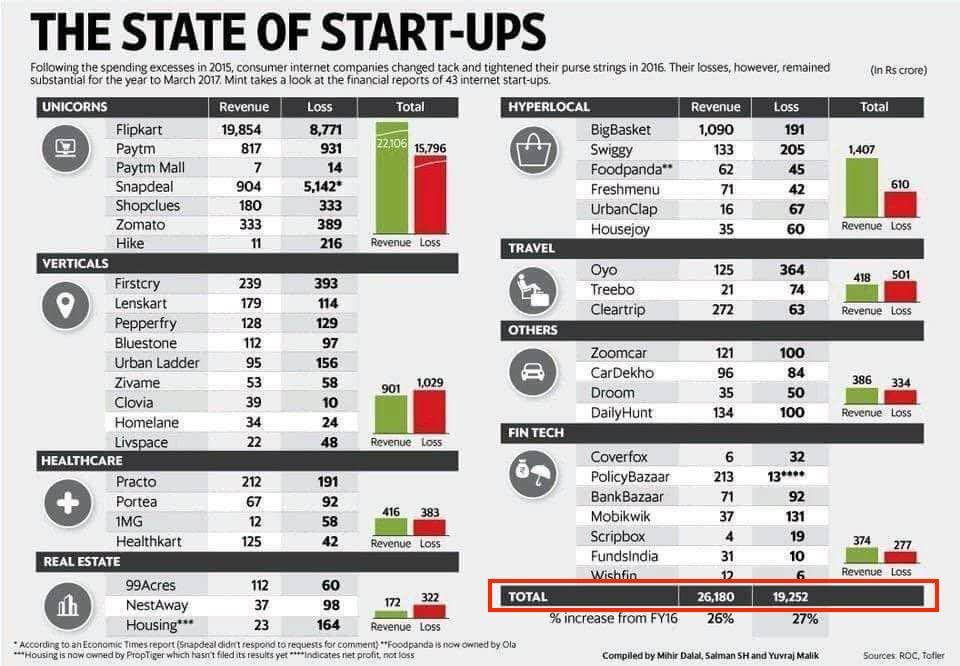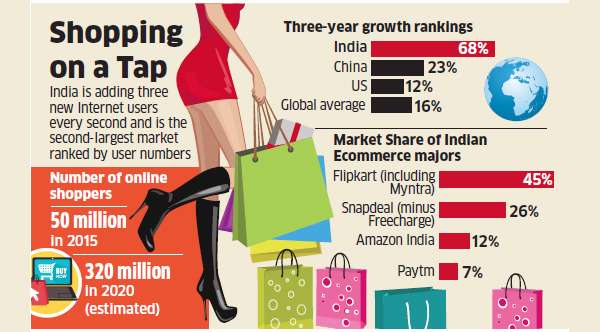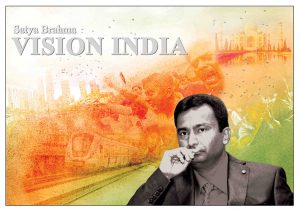

Indian e-commerce giant, Flipkart’s losses have increased 68 per cent to ₹8,771.4 crore during 2017 compared with the year-ago period while revenues grew 29 per cent to ₹19,854.6 crore.Flipkart’s acquired businesses during the year contributed to a revenue of ₹553.3 crore and a loss of ₹156 crore for the periods from their respective acquisition dates to March 31, 2017, Flipkart’s filing with Singapore’s RoC said, as per business intelligence platform, paper.vc.
At Rs 11,754 crore, the combined losses of ecommerce majors Flipkart, Amazon and Snapdeal is almost double the annual budget of the Indian Space Research Organisation (ISRO). To put things in perspective, if ISRO was given the same amount, it would be able to launch about 24 ‘Mangalyaan’ missions to Mars.
With the battle intensifying between the top three players in the Indian ecommerce arena, the losses are mounting at an alarming pace. Despite last year’s talks of a course correction by analysts, fuelled by falling investor sentiment, the losses of the Big Three of the Indian ecommerce sector more than doubled in the fiscal year 2015-16.
Snapdeal recently posted a loss of Rs 2,960 crore (2015-16). Add this to Flipkart’s Rs 5,223 crore and Amazon’s Rs 3,571 crore, you get a colossal loss of Rs 11,754 crore. Compare this to last year, when the combined loss sheet of the three companies totaled Rs 6,031 crore (Amazon: Rs 1,724 crore, Flipkart: Rs 2,979 crore, Snapdeal: Rs 1,328 crore).


While the three players have all claimed to have invested in developing capabilities to sell more to customers at a faster rate, estimates suggest that advertising, discounts and salaries formed a bigger part of the spend. In other words, most of the money of the Big Three went down in duelling each other. The e-retail industry in India has tripled this year, even though the losses have increased. There is definitely buoyancy in this space. It is just that because it is a highly competitive space, these companies are spending a lot on customer acquisition, and that explains the loss.
India Positive
India’s ecommerce market has reached $33 Bn registering a 19.1% growth in 2016-2017, says the recently-published Indian government’s Economic Survey 2018.
The ecommerce market value is still 30% less than what Chinese ecommerce companies sold on Singles day last year.
Compared to the last year, the country’s Information Technology (IT) / IT-enabled services (ITeS) sector has grown to $140 Bn, registering a growth of 8% last year. However, IT-related export percentage, compared to 2006, has come down by 1%, from 68% to 67%.The overall IT-BPM export has grown by 7.6% to $116 Bn from the earlier $108 Bn, said the report quoting NASSCOM.
The report stated, “However as per the RBI data, software exports registered a growth of (-) 0.7% in 2016-17. In 2017-18 H1, it grew by 2.3%. USA, the UK and EU account for around 90% of the total IT-ITeS exports. While, there are new challenges surfacing in these traditional geographies, demand from APAC, Latin America and the Middle East Asia is growing and new opportunities are emerging for expanding in continental Europe, Japan, China and Africa.”
Prepared by the Chief Economic Advisor to the PM, along with the other 55 members in his team, the Economic Survey 2018 has interestingly touched upon a number of allied points such as climate change and gender equality that do affect the country’s economy in long-run.
Ease Of Doing Business
According to the report, the government’s efforts to make business and commerce easy have been widely acknowledged.On Ease of Doing Business, the report said, “The next frontier on the ease of doing business is addressing pendency, delays and backlogs in the appellate and judicial arenas. These are hampering dispute resolution and contract enforcement, discouraging investment, stalling projects, hampering tax collections but also stressing tax-payers, and escalating legal costs.”
“Co-ordinated action between the government and the judiciary – a kind of horizontal Cooperative Separation of Powers to complement vertical Cooperative Federalism between the central and state governments – would address the “law’s delay” and boost economic activity.”
Presenting the figures regarding pendency and delays, the survey has also highlighted the fact that it’s the large scale companies whose loans turn into Non Performing Assets (NPA), while SMEs account for significantly less NPAs.


















